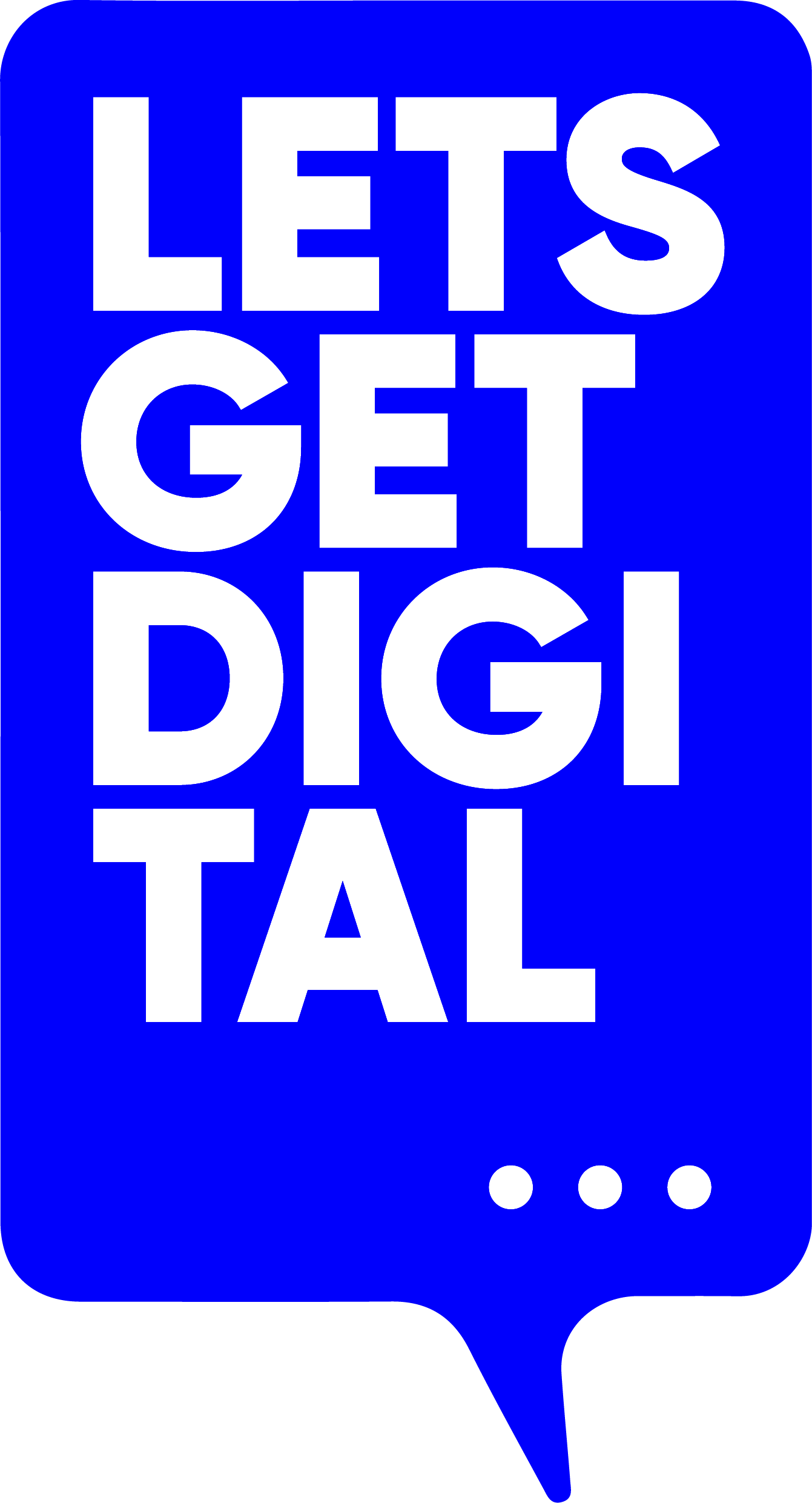What Is Event Check-in Software?
Event planners and organizers utilize event check-in software, a potent tool, to expedite the check-in procedure at events. It is a digital solution that streamlines and automates the check-in procedure, cutting down on wait times and improving participants' overall event experience. The capacity of event check-in software to save participant data and offer real-time insights into attendance figures is one of its primary benefits.
This enables event administrators to monitor the number of attendees at any given moment and modify the event flow as needed. Furthermore, event check-in software makes it simple and safe to check in using a number of techniques, including manual search, NFC technology, and QR code scanning.
This makes the procedure more efficient and removes the possibility of human error by doing away with the requirement for pen and paper checklists. Self-check-in is another feature that certain event check-in software provides, allowing guests to check themselves in via a kiosk or their smartphones. This expedites the check-in procedure even more and gives participants a more customized and convenient experience.
The ability of event check-in software to integrate with other event management technologies, such registration platforms and CRM systems, is another important advantage. This guarantees the smooth transmission of attendee data between systems, removing data entry errors and simplifying the tracking of guest preferences and involvement.
Additionally, event check-in software frequently offers customizable elements like branding and customized check-in messages, giving attendees a more polished and branded experience. In conclusion, event check-in software is an effective tool that streamlines and automates the check-in procedure at events. It offers secure check-in choices, real-time insights, connectivity with other event management tools, and features that can be customized for a smooth and unique experience.
What Are The Recent Trends In Event Check-in Software?
The use of event check-in software has grown significantly in recent years due to the increasing complexity and data-driven nature of events of all sizes and types. Event check-in software is becoming a necessary tool for any event planner due to the innovative improvements in the area brought about by this increase in popularity. What new developments in event check-in software are transforming the field of event management, then?
1. Mobile-First Approach: As mobile devices are used more frequently, event check-in software is starting to take a mobile-first approach. This removes the need for large, antiquated equipment and allows event planners to use smartphones and tablets for quicker and more effective check-in procedures.
2. Real-Time Data Analytics: The days of recording and evaluating event data by hand are long gone. Real-time data analytics are now available in event check-in software, giving organizers important information on the preferences and behavior of attendees. Better decision-making and more individualized event experiences are made possible by this.
3. Self-Service Check-In: Self-service check-in is another trend that is becoming more and more popular. It allows guests to check in with ease using their cellphones. This shortens wait times, expedites the check-in procedure, and raises attendee satisfaction levels all around.
4. Contactless Check-In: Event check-in software has also changed to provide contactless check-in choices in response to the COVID-19 epidemic. By using their own devices to check in, attendees can now reduce physical contact and guarantee a clean and safe event experience.
5. Integration With Event Management Platforms: To facilitate a smooth exchange of data and information, event check-in software is currently being integrated with event management platforms. This gives event coordinators a consolidated view of their event and enables them to make any necessary adjustments in real time.
6. Personalization: Event planners can now customize the check-in procedure by using the attendee data that is made available by event check-in software. This can include unique welcome greetings, specific requests, and other individualized elements that improve the overall experience of attendees.
Benefits Of Using Event Check-in Software
Modern companies and event planners utilize event check-in software, a potent tool, to expedite the registration and check-in procedures at events of all kinds. Attendees, employees, and event planners can all profit greatly from this software's many features. We'll go over the main advantages of event check-in software in our buyer's guide so you can decide if it's the best option for your event requirements.
1. Efficiency And Speed: These two factors are among the primary advantages of utilizing event check-in software. By using this program, participants can avoid long lines and save valuable time by checking in and receiving their event materials promptly. This improves the event's general flow in addition to the experience of attendees. Event personnel may also readily access attendee data and monitor attendance in real-time, which enables them to make well-informed decisions and run the event more effectively.
2. Improved Data Management: Paper-based check-in methods, which frequently resulted in mistakes and lost attendee data, are a thing of the past. A single platform for organizing and managing attendee data is provided by event check-in software. This program eliminates the need for manual data entry and lowers the possibility of errors by storing and maintaining all pertinent information in one location, from registration details to check-in status.
3. Real-Time Insights: Event planners can obtain real-time analytics and insights with event check-in software, which provides a more comprehensive view of the event's performance. This information can include demographics, attendance figures, and more, and it can offer insightful information for future marketing campaigns and event planning.
4. Smooth Integration: CRM platforms, event applications, registration systems, and other event management tools can all be easily integrated with event check-in software. Both guests and event workers can benefit from a more efficient and seamless event experience as a result.
5. Customization And Branding: A variety of customization options provided by event check-in software enable event planners to adapt the check-in procedure to their unique brand and event requirements. This software can assist in producing a more individualized and polished event experience, from customizing registration forms to branding the check-in interface with event logos and colors.
6. Better Security: By guaranteeing that only registered guests may enter the event, event check-in software provides better security measures. In addition to assisting with attendance management, this guards against illegal access and guarantees a safe and secure event for all participants.
Important Factors To Consider While Purchasing Event Check-in Software?
Whether you're hosting a networking event, trade exhibition, or conference, having dependable and effective check-in procedures is essential to a smooth and successful event. Event check-in software is useful in this situation. However, selecting the best option for your unique event demands might be difficult because to the abundance of options on the market. When buying event check-in software, keep the following points in mind:
1. Ease Of Use And User-Friendly Interface: Both event planners and attendees need an interface that is easy to use. To ensure that your team can set up and use the program without any difficulties, make sure it has a low learning curve. In order to reduce wait times and provide guests a good first impression of your event, the check-in procedure should also be easy and intuitive.
2. Compatibility: Verify that the event check-in software works with your current hardware and software systems before making a purchase. This covers the devices, operating system, and additional event management technologies you want to employ. Technical challenges brought on by compatibility problems may compromise the success of your event as a whole.
3. Customization Options: Since each event is unique, you might need to make some adjustments to your check-in procedure. Seek out software that lets you personalize the check-in procedure, add your event branding, and get essential information from guests. This will enable you to give your guests a more tailored and polished experience.
4. Real-Time Data And Reporting: To ensure the success of your event, event check-in software should include real-time data and reporting capabilities that let you monitor attendance figures, check-in timings, and other metrics. This will enhance the entire event experience and assist you in making data-driven decisions.
5. Security And Data Privacy: Given the growing concern about data privacy, it's critical to select software that puts attendee data security first. Choose software that provides safe data transmission and storage options and complies with industry laws.
6. Customer Support: You can still run into technical issues or have inquiries regarding the product despite its user-friendly layout. To help you with any problems or worries that might come up during your event, be sure the vendor provides dependable customer service.
7. Cost: The features offered by each plan and your budget should be taken into account because event check-in software has different pricing points. Seek software that provides the features and customization options you need at a fair price. You may choose event check-in software wisely if you keep these crucial considerations in mind. To choose which choice best suits your unique event demands, don't forget to do your homework and weigh your possibilities. Purchasing the appropriate software can improve your event's experience and make an impact on your guests that will last.
What Are The Key Features To Look For In Event Checkin Software?
There are a number of important factors to take into account when selecting event check-in software. These features are intended to streamline and expedite the check-in procedure while offering participants and event organizers additional benefits.
1. Online Check-In And Registration: Seek out software that enables online check-in and registration for participants. This saves time and cuts down on paper waste by doing away with the need for paper registrations and check-in lines.
2. Customizable Registration Forms: To enable event planners to gather the data they require from participants, the software should include customizable registration forms. This could contain dietary restrictions, demographic information, or other event-specific specifics.
3. Real-Time Check-In And Tracking: Real-time check-in and tracking is important. This enables event planners to monitor attendance during the event and see how many people have checked in.
4. Multiple Check-In Options: The program ought to include a variety of check-in methods, including manual entry, mobile check-in, and barcode scanning. This guarantees a seamless check-in process for guests and offers flexibility for various event kinds.
5. Badge Printing: Look for software that has the ability to print badges. This not only gives the event a polished appearance, but it also makes it simple to identify guests and gain access to various locations.
6. Integration With Other Platforms: Check-in can be made even more effective and streamlined by integrating with other event management platforms, such as ticketing, event registration, and marketing tools.
7. Reporting And Analytics: Seek out software that offers analytics and reporting on the information of attendees. Event planners can use this to gain a deeper understanding of their audience and make wiser choices for subsequent gatherings.
8. On-Site Support: Verify that the software supplier provides technical assistance for the event on-site. This guarantees that any technological problems may be fixed promptly and effectively.
9. User-Friendly Interface: Both event planners and attendees should find the software's interface easy to use and intuitive. During the check-in procedure, this can help save time and clear up confusion. 10. Cost-Effective: Finally, take into account the software's price. Seek solutions that deliver a fair return on investment for the features and advantages offered, along with competitive price.
Why Do Businesses Need Event Check-in Software?
A useful tool for companies trying to optimize their event management procedures is event check-in software. This software is a must-have for any organization because it provides a number of advantages that can significantly improve the success of any event. Above all, event check-in software makes it easier for guests to register and check in. This program makes it simple for guests to register and check in online, cutting down on wait times and long queues.
In addition to saving time and money for the company, this enhances the overall experience of attendees. Additionally, event check-in software gives companies access to real-time analytics and statistics. Attendance figures, popular sessions or events, and participant feedback can all be tracked with this data. Businesses need this information in order to make wise decisions and enhance upcoming events.
Software for event check-in also makes it possible for attendees and organizers to communicate easily. Through the program, businesses may notify attendees of essential changes, reminders, and notifications, ensuring that all necessary information is received on time. Additionally, event check-in software provides capabilities like lead retrieval, session tracking, and badge printing that can improve networking and foster business expansion.
Businesses may grow their network and possible partnerships by connecting with like-minded people and exchanging information with ease. Lastly, the professionalism and organization that are demanded in today's business environment are provided by event check-in software. It not only enhances participants' overall experience but also benefits the company organizing the event.
How Much Time Is Required To Implement Event Check-in Software?
The complexity of the program and the particular requirements of your event will determine how long it takes to create event check-in software. Implementing and integrating event checkin software into your event planning process can take a few days to several weeks on average. The degree of configuration and customisation needed for the software to satisfy your unique event requirements is a crucial consideration.
Creating custom fields for participant information, setting up various ticket types, and customizing the check-in experience to match your event branding may all be part of this. The size and breadth of your event may also have an impact on the timeline. Setting up and testing the software may take longer for larger events with thousands of people than for smaller ones with a few hundred.
Educating your employees on the proper use of the event check-in software is an essential part of the implementation process. Depending on how complicated the software is and how many employees will be using it, this could take several hours to a day. Prior to the event, time should be set up for testing and debugging.
This will guarantee that any problems or glitches are fixed prior to the event day and that your employees are conversant with how the program works. In conclusion, a number of variables, including the degree of customization necessary, the size of your event, and the training and testing procedure, will affect how long it takes to develop event checkin software. Planning ahead and allotting sufficient time are crucial for a successful and seamless deployment.
What Is The Level Of Customization Available In Event Check-in Software?
Different degrees of customization are available in event check-in software to meet the specific requirements of event planners. This enables users to design a smooth and distinctive check-in process for guests. Although the software vendor determines the degree of customization possible, most systems allow a number of choices to customize the check-in procedure.
These include adding branding components like logos and event visuals, altering the check-in page's structure and appearance, and including unique fields for gathering attendance data. The ability to create several check-in flows is another feature of some event check-in software that lets organizers customize the check-in procedure for various guests, including speakers or VIPs.
This expedites the check-in procedure and improves the guest experience even further. Event check-in software provides the option to alter check-in rules and settings in addition to visual customization. This entails establishing unique check-in questions, implementing check-in limitations, and setting up automated check-in deadlines.
These capabilities allow organizers to customize the check-in procedure to meet the aims and objectives of their event. Additionally, the information gathered during the check-in procedure can be altered to meet the particular requirements of the occasion. In order to make the check-in process more effective and pertinent to their event, organizers can decide which information to gather, such as contact information, dietary restrictions, or session choices.
All things considered, event check-in software provides a great degree of personalization, enabling planners to design a customized check-in process for their guests. This raises the event's overall effectiveness and success in addition to improving the experience of attendees.
Which Industries Can Benefit The Most From Event Check-in Software?
Software for event check-in is a useful resource for companies and groups across a range of sectors. There are a few general advantages that are applicable to all industries, even though the advantages may vary slightly depending on the particular one. Let's examine the sectors that stand to gain the most from event check-in software.
1. Event Management: Needless to say, event check-in software is a huge help to event management firms. Event planners can focus on other facets of event management and expedite the check-in process by managing attendee lists, tracking attendance, and producing real-time information.
2. Corporate Events: Event check-in software is especially advantageous for businesses that conduct conferences, seminars, and meetings. They can quickly register guests, print name badges, and monitor attendance with this program, which streamlines and elevates the check-in procedure.
3. Trade Shows: Trade shows are huge gatherings that draw lots of people. With the aid of event check-in software, trade show managers may streamline the check-in procedure, cutting down on lengthy lines and guaranteeing a seamless entrance for every guest.
4. Nonprofit Organizations: Organizing effective fundraising events is essential for nonprofit organizations. They can effectively track donations, register participants, and create post-event reports to evaluate the event's success with the aid of event check-in software.
5. Educational Institutions: For a variety of events, including open houses, orientation sessions, and alumni reunions, schools, colleges, and universities can also profit from event check-in software. They may track student participation, collect feedback, and manage parent and student attendance with the use of this program.
6. Hospitality Industry: Event check-in software can help hotels, resorts, and event locations organize their events more efficiently. In addition to managing guest lists and accommodation reservations, this software helps expedite the check-in procedure for visitors to events hosted on their property.
7. Government Organizations: Conferences, seminars, and workshops are frequently held by government organizations. They may manage guest lists, monitor security clearance, and create attendance and feedback reports with the help of event check-in software.
8. Healthcare Industry: Event check-in software can be used for training sessions, conferences, and seminars at hospitals, clinics, and medical associations. They may effectively track attendance, handle registration, and get participant feedback with the aid of this software.
Conclusion
To sum up, selecting the appropriate event check-in software may significantly improve the check-in procedure for your event, making it more smooth, organized, and effective. You may make an informed choice that suits your unique requirements and objectives by taking into account the important elements covered in this article, including the event's size and type, budget, features, and customer service.
There is an event check-in program that is appropriate for any size of gathering, be it a small company get-together or a major corporate conference. Remember how crucial an intuitive user interface and the capacity to link with other event management solutions are. You can improve the experience of your guests and create a lasting impression with the correct event check-in software. Have fun with your planning!











